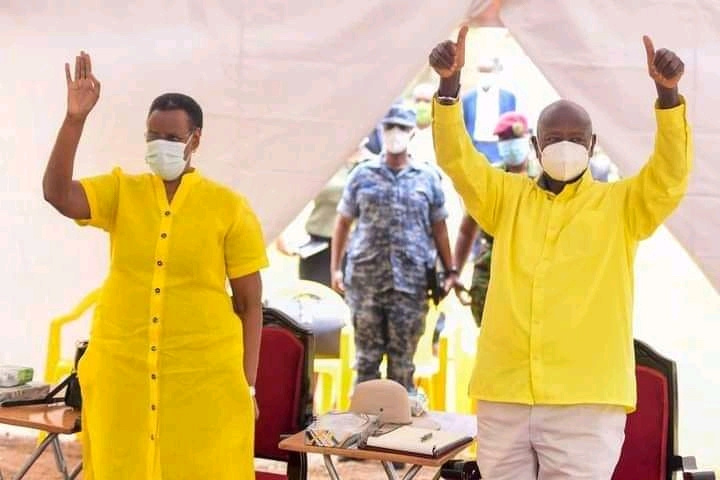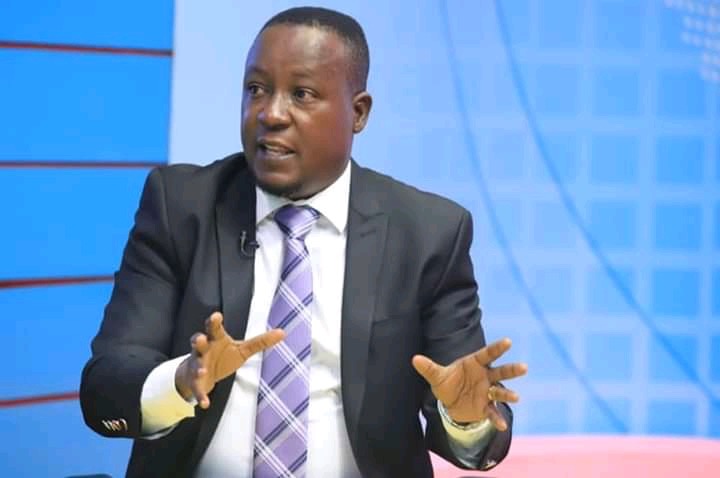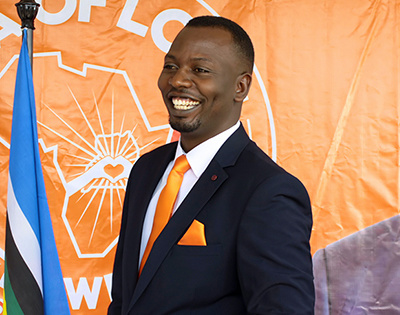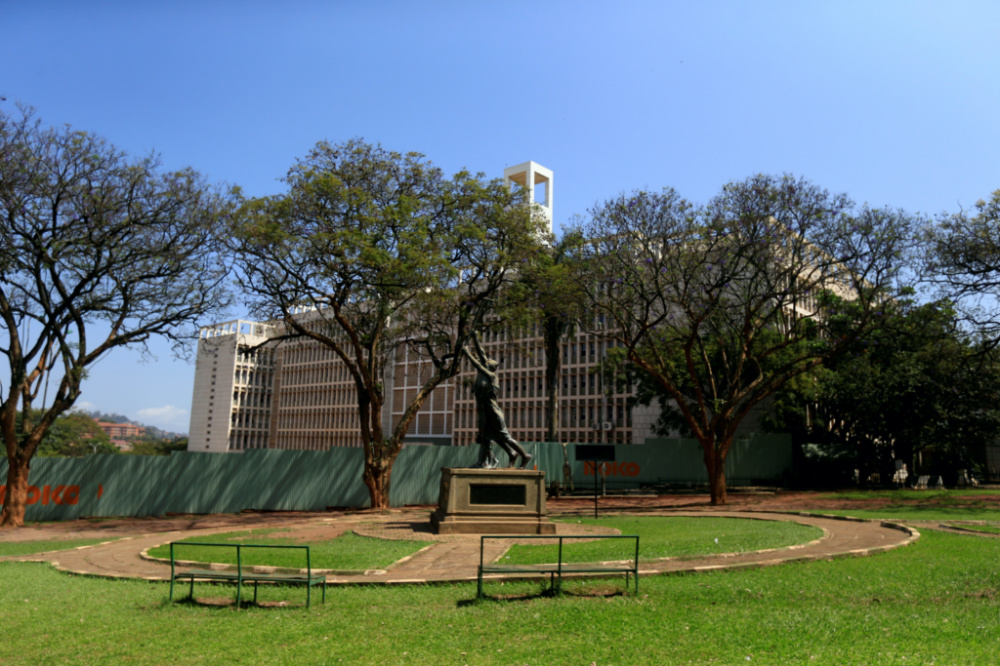
JOHN SEMAKULA reports how two pastors are hoping to bring Ugandan President Yoweri Museveni’s long rule to an end in next year’s presidential election…
When Uganda’s Yoweri Museveni took power as President on 26th January, 1986, he was 42-years-old. Ever since then, Museveni has sought re-election into the country’s top office five times. His current term of office expires in May next year.
As a result, the country is organising another general election, one in which 76-year-old Museveni is yet again seeking re-election in a continuation of his presidency. Among the 10 other people challenging Museveni for his seat are two pastors – Joseph Kabuleta, 47, and Fred Mwesigye, 39 – both independent candidates in Uganda’s multi-party democracy.

President Yoweri Museveni and wife Janet Museveni during the presidential nominations recently. PICTURE: State House.
In 1986, when Museveni overthrew the government after a protracted five-year war, Mwesigye was five-years-old and Kabuleta 13-years-old. Thirty-four years down the road, Kabuleta, of Watchman Ministries, and Mwesigye, of the House of God Worship Centre Ministries International Church, feel they are of age to wrestle the seat away from the President.
After his inauguration in 1986, Museveni made a passionate appeal for leaders not to overstay in power.
In 1986, when Museveni overthrew the government after a protracted five-year war, Mwesigye was five-years-old and Kabuleta 13-years-old. Thirty-four years down the road, Kabuleta, of Watchman Ministries, and Mwesigye, of the House of God Worship Centre Ministries International Church, feel they are of age to wrestle the seat away from the President.
“The problem of Africa in general and Uganda, in particular, is not the people, but leaders who want to overstay in power,” Museveni said in his inaugural speech as President. It is that statement that Kabuleta is reminding Museveni to listen to, once again (Museveni, for his part, has responded to critics who bring up that comment by saying that “leadership is about ideology not biology [age]”.
In 1995, Uganda promulgated a new constitution, which contained checks to ensure there is no longevity in power of any head of state. One of the checks was that a president would not serve more than two five-year terms as head of state. The other was that anyone above 75 years would not be nominated to run for the presidency.
None of the checks, however, was tested. Ten years down the road, in 2005, lawmakers of the ruling party used their numerical strength in Parliament to amend the constitution, removing the cap of two terms. Museveni had already served two terms from the time of the promulgation of the constitution and was not eligible to run for office again when the change was made.
The second check, the 75-year age limit for anyone running for office of the president, was removed in 2017. Now, anyone of voting age can contest for the office. Museveni turned 76 in September, less than two months before he was nominated to seek re-election.
Kabuleta says while the 36 years of Museveni’s rule have seen him and his family capture and later personalise state resources, if elected into office, he will ensure financial liberty for all Ugandans.
“Uganda is just a family business today, where majority of Ugandans are slaves,” Kabuleta says, adding that “the resources and wealth of this country should not belong to one family and their hangers-on, but all Ugandans.”
A D V E R T I S E M E N T
{subscriber-ad}
A former sports journalist at the government-owned daily newspaper, the New Vision, Kabuleta’s messages of financial liberation strike a chord with the young people and Christians struggling with high rates of unemployment and poverty. Whether he wins the race or not, Kabuleta’s message has helped to awaken multitudes of Ugandans who previously voted for President Museveni on account of the peace he ushered into many parts of the country in contrast to what existed before 1986.


Top – Pastor Joseph Kabuleta; Below – Pastor Fred Mwesigye. PICTURE: Via Facebook.
Kabuleta’s other campaign message about the need for religious freedom in Uganda has made him a darling among voters in Pentecostal churches. Even before declaring his intention to contest for the presidency, Kabuleta was a vocal critic of government policies against religious freedoms. In 2019, he went to court to challenge a policy that had been introduced by Museveni’s government in 2018 under which pastors, firstly, were required to have formal training before being allowed to start a church and, secondly, had to declare their annual incomes.
Kabuleta argued that the government was trying to tax pastors and put restrictions on their work. He argued that freedom of worship was an inalienable right. He also criticised the government for the recent lockdown in an effort to reduce the rate of COVID-19 infections which saw churches in the country closed from March to October.
Meanwhile, Mwesigye, a father of five, says Uganda’s forefathers knew that for the country to realise its full potential, it needs God. He says that once in power, he will serve based on the “love and fear of God”.
“I stand as an independent-minded candidate, with a Godly impulse to make a difference through the political sphere that will impact Uganda and Africa as a whole,” Mwesigye says.
In most of the previous elections, Pentecostals have openly shown support for Museveni whose government has allowed them to freely open churches. However, over time, when the same government began to introduce policies that were perceived as being against the churches, their support began to shift towards the opposition.
There are also dozens of other religious leaders seeking lower electoral offices at the parliamentary and local government levels in Uganda.
In Gulu Diocese, located in northern Uganda, Fr Charles Onen, a curate at the Holy Rosary Parish Church, is contesting for the Gulu East Division parliamentary seat. He was, however, recently suspended from administering sacraments in the Catholic Church by the Archbishop, John Baptist Odoma, after insisting on remaining in the race against the latter’s advice to quit.
Onen, who has spearheaded a campaign against land grabbing, says he will not quit politics due to the time and resources he’s already committed.

A statue is seen in the gardens of the parliament of the Republic of Uganda in capital Kampala, Uganda, on 28th September, 2017. PICTURE: Reuters/James Akena/File photo.
He’s not alone in facing strong opposition – many clergy seeking political offices have seen a similar response from their superiors, who insist that elective politics is a no-go zone for the clergy.
The Anglican Church in Uganda has said no ordained person or commissioned worker is allowed to seek a political office. So, when retired Anglican Bishop Zabedee Masereka of the South Rwenzori Diocese announced he would run for a seat in Parliament, the House of Bishops accused him of undermining the resolution of the church under which clergy are barred from participating in politics when still active in church ministry. However, Bishop Masereka insisted that he would not quit politics because he “wanted to serve God’s people in the political capacity”.
President Museveni, meanwhile, is among those pushing for clergy to stay out of politics.
He has admonished them not to do so on several occasions, arguing that such a move would end up dividing their flock. He says that in the same way politicians should not preside over a mass in church, the clergy should not contest for elective offices.
At the moment, it looks like growing numbers of clergy aren’t heeding that warning.





